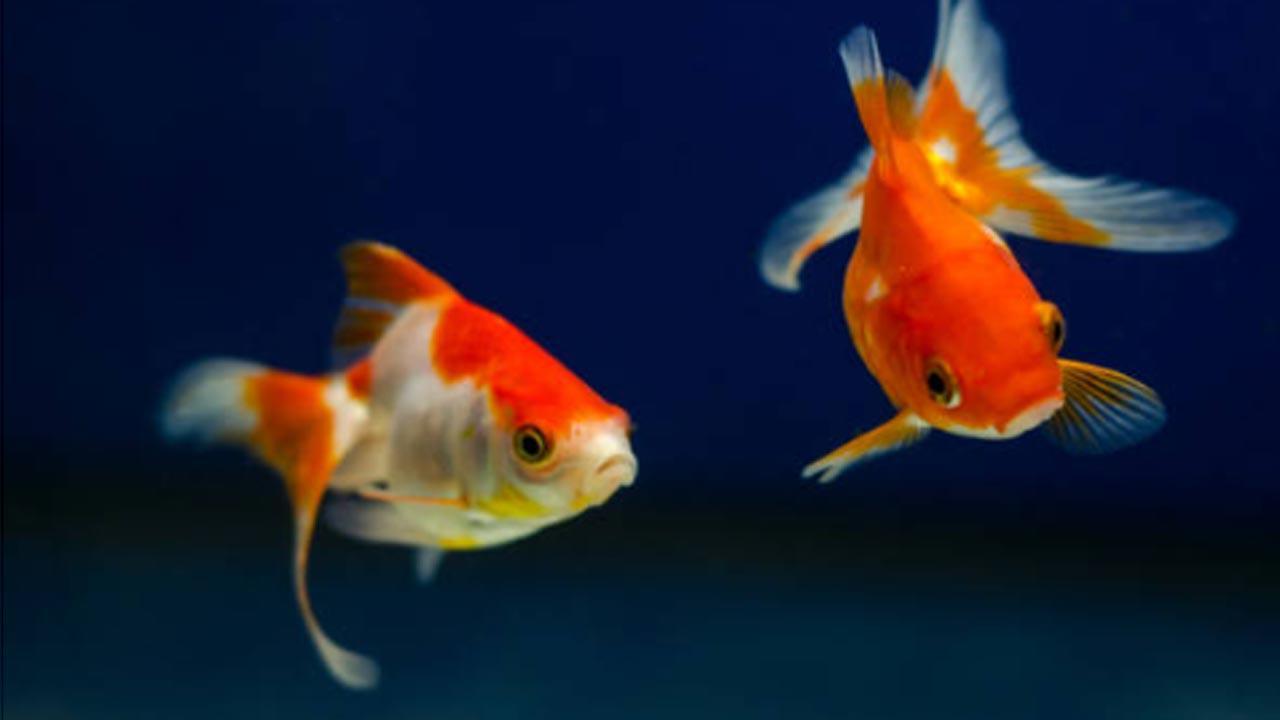The research published in NeoBiota showed goldfish to be voracious, consuming much more than the white cloud mountain minnow or native species. In terms of behaviour patterns, goldfish were also found to be much braver, a trait linked with invasive spread

Representational image. Pic/iStock
Invasive species are one of the leading causes of global biodiversity loss, and the pet trade is responsible for a third of all aquatic invasive species.
ADVERTISEMENT
Pet owners releasing unwanted pets into the wild is a major problem. Whilst many believe this is a humane option, new research suggests that attempting to 'save' the life of a goldfish could in fact lead to catastrophic outcomes for native biodiversity.
To better understand the ecological risks posed by species within the pet trade, the researchers focused on the two most commonly traded fish species in Northern Ireland: the goldfish and the white cloud mountain minnow.
The globally popular goldfish was first domesticated over a thousand years ago and has since established non-native populations around the world. The white cloud mountain minnow on the other hand is a species with a limited invasion history to date.
This study, published in NeoBiota, developed a new method for assessing the ecological impacts and risks of potential pet trade invaders, based on availability, feeding rates and behaviour.
The research showed goldfish to be voracious, consuming much more than the white cloud mountain minnow or native species. In terms of behaviour patterns, goldfish were also found to be much braver, a trait linked with invasive spread.
Lead author, James Dickey from the School of Biological Sciences at Queen's University Belfast, explains to IANS: "Our research suggests that goldfish pose a triple threat. Not only are they readily available, but they combine insatiable appetites with bold behaviour. While northern European climates are often a barrier to non-native species surviving in the wild, goldfish are known to be tolerant to such conditions, and could pose a real threat to native biodiversity in rivers and lakes, eating up the resources that other species depend on.
"Our research highlights that the goldfish are high risk, but we hope that the methods developed here can be used to assess others in the pet trade across Ireland and further afield.
"Readily available species are most likely to be released, so limiting the availability of potentially impactful ones, alongside better education of pet owners, is a solution to preventing damaging invaders establishing in the future."
The research led by Queen's University Belfast was funded by the Alexander von Humboldt Foundation, Inland Fisheries Ireland and the Department of Agriculture, Environment and Rural Affairs (DAERA) NI.
The study was presented at the International Conference on Aquatic Invasive Species in Oostende, Belgium along with a range of other leading research from Queen's on alien species.
This story has been sourced from a third party syndicated feed, agencies. Mid-day accepts no responsibility or liability for its dependability, trustworthiness, reliability and data of the text. Mid-day management/mid-day.com reserves the sole right to alter, delete or remove (without notice) the content in its absolute discretion for any reason whatsoever
 Subscribe today by clicking the link and stay updated with the latest news!" Click here!
Subscribe today by clicking the link and stay updated with the latest news!" Click here!







